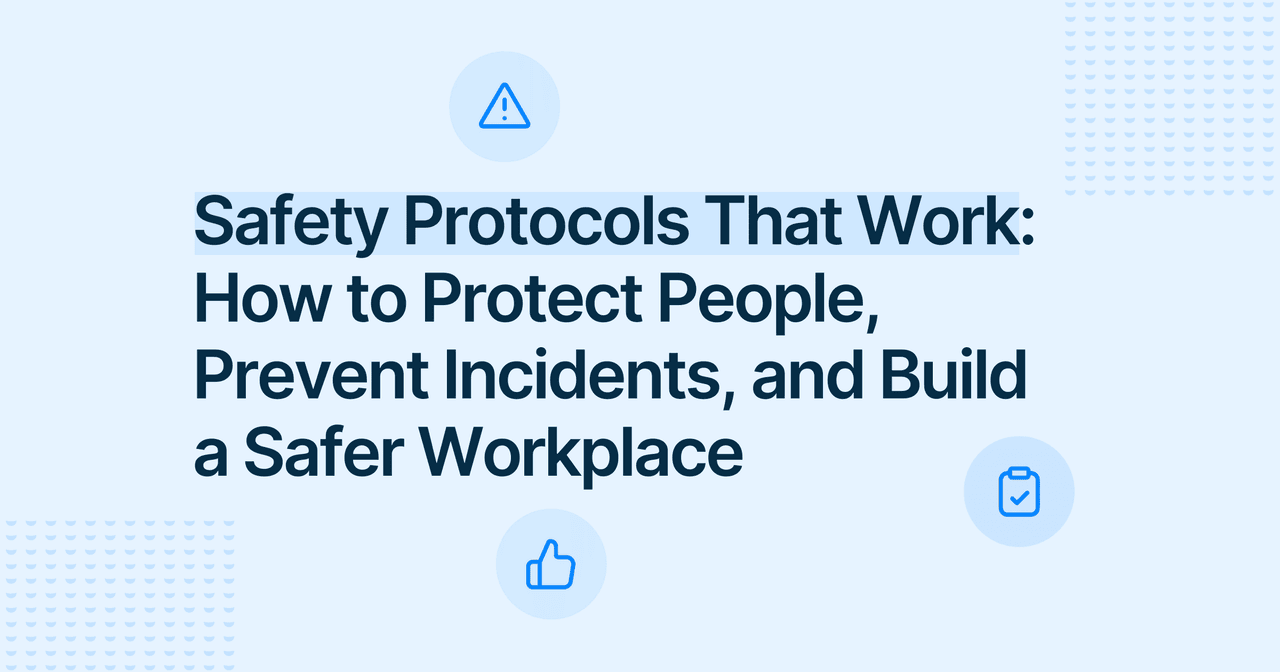



Bring All Confidential Reports Into One Secure Place
We’ll assess your needs and recommend the right setup for anonymous reporting or surveys - aligned with your compliance or HR goals.
Legal & Compliance

Alaa El-Shaarawi
Copywriter and Content Manager
Published
2025-11-13
Reading time
7 min


Table of contents
Subscribe to our newsletter
In the early 2000s, Siemens was the poster child for what can go wrong when anti-corruption controls and internal reporting fail. Over several years, the company paid over $100 million in bribes across multiple countries, often through third-party intermediaries, to secure government contracts.
Payments were disguised as consulting fees or marketing expenses, and internal reports were either ignored or never escalated. By the time U.S. authorities and the U.S. Department of Justice (DOJ) intervened, Siemens faced fines exceeding $800 million and was forced to undertake a global compliance overhaul.
The Siemens case illustrates an important lesson: anti-bribery policies on paper mean little without mechanisms for employees to report suspicions safely, investigations to follow swiftly, and leadership to act decisively. Early detection through robust internal reporting could have reduced fines and protected Siemens’ reputation.
Today, whistleblowing tools provide secure, confidential reporting channels, track investigations, and maintain audit-ready documentation essential for Foreign Corrupt Practices Act (FCPA) compliance.
This post explores how the FCPA intersects with whistleblowing and internal reporting, and how organizations can use these tools to detect and prevent corruption before regulators intervene.

The Foreign Corrupt Practices Act law, enacted in 1977, prohibits U.S. persons, issuers, and foreign firms engaging with U.S. markets from bribing foreign government officials to gain or retain business.
The law is enforced by the U.S. Department of Justice and the U.S. Securities and Exchange Commission.
The anti-bribery provisions of the FCPA make it unlawful to offer, promise, or authorize a corrupt payment or anything of value to a foreign official to obtain an improper advantage or influence business transactions. This includes:
Within the context of our example, Siemens’ use of intermediaries demonstrates how indirect payments still violate the law. These provisions of the FCPA apply to U.S. companies, their subsidiaries, and anyone acting on their behalf, regardless of the foreign country involved.
The accounting provisions require companies to maintain:
Weak controls can turn small transactions into major FCPA cases and trigger civil penalties or criminal penalties under anti-corruption laws.
The U.S. Foreign Corrupt Practices Act applies to:
This broad jurisdiction means international business operations, joint ventures, and distributors can all fall under FCPA enforcement.
Suspicious payments, interactions with third parties, gifts, and travel all represent risk areas. Without accessible internal reporting channels, these issues may go undetected until regulators intervene.
Tools like FaceUp help organizations create reporting systems that employees trust and use, so concerns surface early, investigations are documented, and compliance becomes proactive rather than reactive.
When someone at your company notices suspicious activity, the big question is: where do they go next? The FCPA acknowledges that whistleblowers are often the first line of defense against bribery and corruption.
The SEC and DOJ have programs that reward and protect employees who report violations, but navigating between internal channels and external authorities isn’t always straightforward.
Whistleblower rewards are reshaping how corporate misconduct comes to light. Both the SEC and DOJ now offer clear incentives for employees to report wrongdoing directly to regulators.
These programs show that external reporting carries real incentives, but skipping internal channels can make remediation more complicated and put your organization at greater risk.
Laws like the Sarbanes-Oxley Act exist to strengthen protection for whistleblowers reporting bribery or FCPA violations, but even the strongest laws can’t overcome fear. When people doubt internal processes or worry about retaliation, they often skip straight to regulators.
That puts the company at risk financially and reputationally, often leading to higher penalties for violating the Foreign Corrupt Practices Act.
Strong internal channels increase the likelihood that employees will report internally first. Whistleblowing platforms like Faceup can anonymize reports, provide audit trails, and support investigators with structured workflows.
A report logged in a secure system is easier to triage, investigate, and escalate if necessary, while maintaining compliance with FCPA reporting requirements.
Internal reporting should sit at the heart of your compliance program. When potential bribery or accounting issues are flagged early, your team has the chance to investigate quickly, fix problems, and even self-disclose if needed.
Acting early can reduce fines and penalties while showing regulators that your organization takes compliance seriously. Effective internal reporting usually comes down to five things:
Platforms like FaceUp bring these elements together in one place, helping teams collect, triage, and track reports across regions, with audit-ready records and clear escalation paths.

Even with strong internal channels, there are moments when escalation to the SEC or DOJ is necessary.
External reporting is warranted if:
If escalation is needed, regulators expect credible, factual information. Employees should follow official reporting channels and may consult legal counsel for guidance. Keeping confidentiality and clear records helps the matter be handled properly.
When employees bypass internal systems, regulators take the lead, and your company loses the chance to manage the situation internally. That’s why trusted internal reporting channels matter.
Tools like Faceup help teams handle reports securely, investigate with structure, and keep clear documentation, while still respecting an employee’s right to go external if needed.
The DOJ encourages voluntary self-disclosure and often weighs it when determining penalties. A well-run internal process that catches issues early gives organizations the opportunity to disclose on their own terms.
This can make the difference between a manageable settlement and a multi-million-dollar enforcement action.
Whistleblowers are motivated by potential rewards, confidentiality, and trust that their reports lead to action. Organizations must provide protections to avoid retaliation and maintain credibility.
Common pitfalls include:
Faceup addresses many of these challenges by combining secure, anonymous reporting with workflow tools for investigation, escalation, and remediation tracking.
Here are actionable steps for teams looking to align internal reporting with FCPA obligations:
| Action | Key Notes / Benefits |
|---|---|
| Build a Clear Reporting Framework | Offer global hotlines or portals, provide language support, link reporting to anti-bribery and corruption policy |
| Implement Triage and Escalation Processes | Classify reports by risk, determine when internal investigation or external counsel is needed |
| Document Thoroughly | Record allegations, steps taken, evidence, findings, and remediation actions to meet FCPA requirements |
| Inform Compliance with Reporting Data | Analyze trends, identify weak points, refine policies, resource allocation, and training programs |
| Account for Global Complexity | Incorporate local regulations, data privacy, cultural considerations, and third-party obligations |
| Prepare for Self-Disclosure | Develop thresholds and playbooks, document decisions, maintain transparency with senior leadership |
For deeper insights, explore how to measure compliance KPI beyond traditional metrics.
The Siemens example shows that FCPA compliance is more than policy documents. Internal reporting, triage, investigation, and remediation are the foundation of a credible compliance program.
Platforms like FaceUp turn reporting channels into actionable compliance tools, giving organizations the ability to detect risks early, respond decisively, and align with DOJ/SEC expectations.
Ready to turn your internal reporting into a proactive compliance lever?
Book a demo and see how FaceUp can integrate whistleblower management, investigations, and FCPA compliance into a single workflow.




We’ll assess your needs and recommend the right setup for anonymous reporting or surveys - aligned with your compliance or HR goals.
Keep Reading

Alaa El-Shaarawi2026-02-108 min
Legal & Compliance

Alaa El-Shaarawi2026-02-098 min
Workplace Environment

Marie Roland2026-02-033 min
Workplace Environment

Alaa El-Shaarawi2026-02-029 min
Workplace Environment